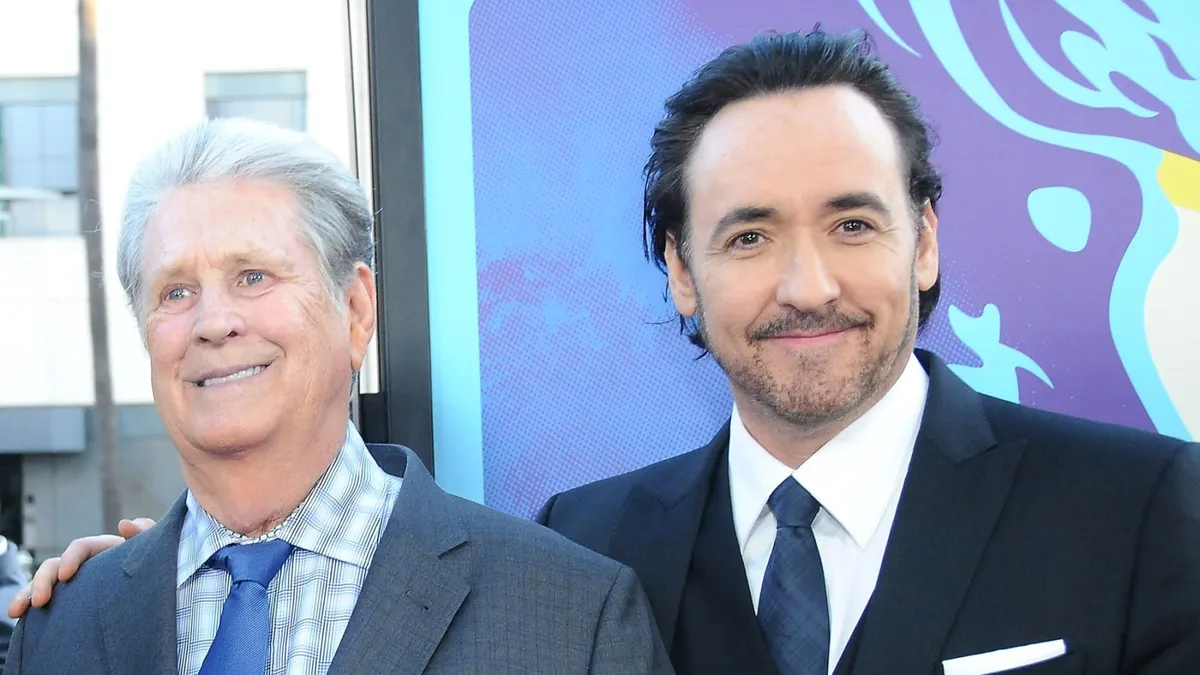
In the acclaimed 2014 biopic Love & Mercy, actor John Cusack portrayed the elder Brian Wilson, the legendary musical genius behind the Beach Boys and a pioneer of California rock. Wilson, who passed away on Wednesday at the age of 82, had a significant impact on music, particularly after the tumultuous Smile sessions, during which he became more withdrawn both personally and musically. Cusack reflects on this transformative period, noting, “It was when he went into his darker period, that part of his life was much less known.”
To fully embody the complexities of Wilson’s character, Cusack was granted “extraordinary access into his life and past” by Wilson and his wife, Melinda Ledbetter. This allowed Cusack to gain insight into Wilson's daily routines, such as visiting his favorite diner—a spot the Beach Boys co-founder frequented daily—and spending time in his music room. “If he’s near a piano, he’s usually strumming on it,” Cusack recalls, emphasizing the deep connection he felt with Wilson during this process.
In an interesting approach to character development, Cusack and his co-star Paul Dano, who depicted the younger Wilson at the height of his Beach Boys creativity, decided to avoid discussing their interpretations of Wilson. “We wanted two totally different takes, and that felt right,” Cusack explains. When they finally met toward the end of filming, they discovered they shared a common entry point into Wilson's life: the Smile sessions.
Wilson’s generous spirit extended beyond the film set. At the wrap party, he expressed a desire to perform and invited Cusack and Dano to join him onstage. He even handed Cusack the lyrics to “Do It Again.” Their bond did not end there; Cusack attended several of Wilson's concerts and even performed with him at the Pitchfork Music Festival in 2016, where they sang “Sloop John B” together. “He’s such a mythological figure,” Cusack remarks, “His heart was as big as you think it was.”
Cusack describes Wilson as an “extraordinary” individual, highlighting his willingness to confront the troubled aspects of his life with openness and authenticity. Wilson aimed to expose his darkness to help reduce the stigma surrounding mental illness. “He was quite an extraordinary guy,” Cusack reflects, noting the complexity of Wilson's character. “There’s a difference between someone who thinks about music all the time and someone who literally can’t get the tune out of their head.”
Wilson’s experiences shaped his music, as Cusack observed during a pivotal scene in the film where Wilson confronts the turmoil brought on by his controversial psychiatrist, Dr. Eugene Landy. “It was really his rock bottom,” Cusack recalls, emphasizing the emotional weight of the moment. The day they filmed this breakdown scene, Wilson made an unexpected appearance on set, just moments before they rolled the cameras. “He just showed up five minutes before the breakdown scene,” Cusack remembers, illustrating Wilson’s uncanny ability to connect with his surroundings and the people in them.
As the film drew to a close, Wilson expressed his appreciation by writing lyrics to “Love and Mercy.” Melinda noted that this was an unprecedented act for him, showcasing the progress he had made from his darker days to a place of stability and happiness. Cusack reflects, “It was a triumph of endurance and spirit that he had made it all the way through.”
Despite the scars left from his past, Wilson’s resilience shone through. Cusack describes him as “a raw, open, beating heart with two legs and an ear that heard the angels,” emphasizing the duality of Wilson's experience—both the vulnerability and the toughness needed to navigate his life and career.
In the end, Cusack was deeply invested in honoring Wilson’s legacy. “It felt meaningful because I knew it was a story that we had to get right for the legacy of the music and the impact it had on the culture,” he states. He felt a personal responsibility to represent Wilson authentically and ensure that both he and Melinda felt their story was told with integrity.
As the film captures an essential yet often hidden part of Wilson's life, Cusack recognizes that “one piece of art can never tell the whole story.” However, he aimed to create a version that felt true to Wilson’s essence, capturing the profound impact he had on music and culture. “He is a big deal,” Cusack concludes, underscoring the seismic influence Wilson had on the world.